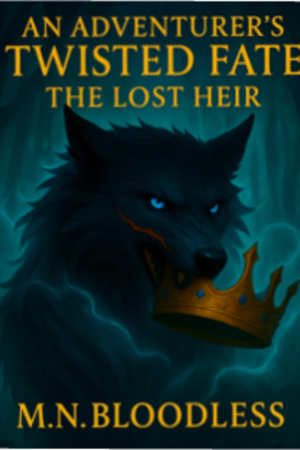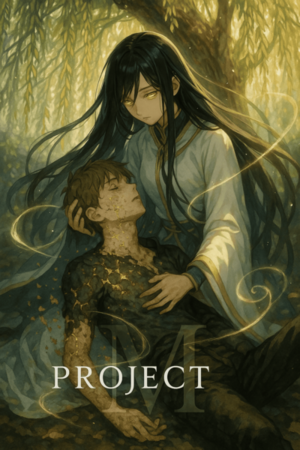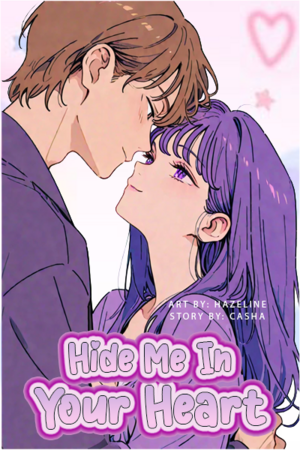Chapter 21:
Chapter 21: Spells
An Adventurer’s Twisted Fate: The Lost Heir
The lecture hall buzzed with quiet chatter as we filed in, still shaken from the last Combat Training class. My arm ached slightly from blocking too many hits, but nothing compared to the bruised pride and real injuries some of my classmates were nursing. Elaris hadn’t returned yet. Just thinking about her arm made my stomach twist.
I took my seat near the middle—Rias beside me, her hand tracing the rim of her necklace as she listened to the voices around her. Caelan slouched in a chair two rows behind, chewing on something that smelled familiar. Seraphine sat tall and unbothered, flipping through a notebook with elaborate golden margins.
Then the door opened with a whisper of wind.
Professor Calia Wynnshade glided into the room, her deep blue robes trailing behind her like ripples in a pond. Her silver eyes scanned the hall with quiet intensity.
“Settle in,” she said, voice low but commanding. “Today, we explore the one thing most of you misunderstand.”
A pause.
“Visualization.”
The word rang in the air like the opening note of a performance.
She stepped up to the blackboard and, with a flick of her fingers, drew a glowing chalk symbol in the air—a spiral curling inward.
“Mana is not the spell,” she began. “Mana is your power supply. The spell is your will, your intent—your visualization. To cast magic, you must shape the mana into something meaningful. And meaning begins in the mind.”
She turned to us. “Let’s simplify. Imagine a fireball. What must you visualize?”
Seraphine raised her hand.
“A ball of fire?” she said, unsure.
The professor nodded. “That’s part of it. But not enough. You must visualize not only the flame’s shape and texture, but its origin point. Where it forms. Then where it goes. If you cannot imagine the path—how can you expect your magic to find it?”
Toren raised a hand. “But what if there isn’t a path? What if you just want it to go forward and hit something?”
Professor Wynnshade gave a ghost of a smile. “Then your intent is ‘until contact.’ That is a destination.”
She let that sink in.
“Now, what about incantations?” she asked. “Some of you lean on them like crutches.”
She stared directly at me.
I shifted in my seat.
“An incantation,” she continued, “is not the spell. It’s a trigger. A shortcut. Your body—your mana veins—remember how the spell flows, but they need instruction. A name. A signal. Think of it as muscle memory, but for magic.”
Rias tilted her head. “So… if you can visualize it perfectly, you don’t need the words?”
Wynnshade’s expression sharpened with interest. “Exactly.”
She raised a hand and, without a word, summoned a narrow stream of water from the air, weaving it into a perfect spiral before letting it splash into a basin at her side.
“Wordless casting,” she said, “offers greater control. Greater creativity. But it has a fatal flaw—it fails the moment you lose focus. That is why techniques like Enhancement,” she glanced at me again, “require discipline, not just strength.”
I felt the weight of her words.
Stewart’s training.
His strikes.
The way he never told me to dodge—only to maintain the spell even under pressure.
“Some spells can be visualized once,” the professor said, “then cast again and again using only the incantation. But only if your subconscious understands the shape and function of that spell.”
She conjured a floating rune.
“This is why you must either see a spell… or visualize it in such vivid detail that your body stores it.”
I raised my hand.
“So if I’ve seen a fireball spell, and I have the fire affinity, I can use it… just by calling its name?”
“If your body remembers the pattern, yes,” she said. “But if you never burned yourself, never saw fire arc through the air, never imagined its heat licking your skin, then no incantation will help you. Your spell will fizzle. Or worse—backfire.”
She let the silence linger.
Then, almost softly, she said, “Magic… is not born from words. It is born from will. Words are only reminders.”
A pulse of magic flowed through the room.
It wasn’t showy. It wasn’t loud.
But it stuck.
And somehow, in that quiet moment, everything clicked into place.
Spells were visualized. Mana was channeled. Incantations were just the names we gave our intentions.
I thought of the fire I conjured against Sköll.
I hadn’t shouted a name.
I had just imagined the flame—and let it go.
Professor Wynnshade turned away. “Later today, each of you will attempt a basic elemental spell with and without incantations. For now, class dismissed.”
The sun hung lower now, casting golden light across the campus as we returned to the training fields behind the main building. The wind was stronger here—steady and crisp—rushing through the carved stone pillars and the trees that lined the far edge of the floating island. A faint hum of magic pulsed underfoot, like the very ground had a heartbeat.
As we entered the colosseum, I noticed the field had been rearranged since combat training. This time, there were no weapons racks or sparring dummies. Just a line of targets, each identical to one another, with runes glowing along the sides.
Professor Wynnshade stood in front of the class, her robes fluttering slightly as she turned to address us.
“Each of you will now attempt to cast a basic elemental spell,” she said. “First with an incantation. Then without.”
She paced slowly behind us. “Your goal is to strike the center of your assigned target. Accuracy and control matter more than power.”
Seraphine raised her hand, clearly unfazed. “Is there a required element?”
Wynnshade shook her head. “No. Use whatever matches your affinity. This is about intent.”
She paced slowly in front of the class. “As for incantations—create your own. Don’t worry if it sounds silly or dramatic. Perfecting a spell that’s truly yours takes time. We’ll refine them together over the course of the year.”
She gestured toward the nearest student. “Now begin.”
One by one, students stepped forward and launched their spells. Fireballs sputtered out and veered off course. A few managed decent hits. Some missed entirely. A few even produced sparks and nothing more.
Rias stood still beside me, her lips pursed. I could sense her nerves beneath her usual calm. She whispered under her breath, perhaps mouthing a name for her spell.
When her turn came, she stepped forward with quiet confidence. Wind gathered around her like a soft breath, brushing her silver hair aside. Her fingers stretched outward. “Aeris,” she whispered.
A spiral of air shot forth from her palm, slamming directly into the target. A perfect hit.
A few students clapped quietly.
Professor Wynnshade simply nodded. “Again. This time, no words.”
Rias took a breath and stilled herself. The wind pulsed again—slightly weaker, less refined—but it still struck the center.
The professor’s expression didn’t change, but I swore her gaze lingered longer than usual.
Then it was my turn.
I stepped forward, heart thudding, and raised my hand toward the target.
“Flaris,” I said, focusing hard.
Flames sparked at my fingertips, coalescing into a small orb that launched forward and struck the side of the target. Not center… but not terrible.
“Again,” Wynnshade said, folding her arms. “No incantation.”
I inhaled through my nose, trying to remember the feeling from before. The heat in my chest. The pressure in my fingers. I visualized the ball of fire—its swirling core, the way it ignited the air, the trail it would leave behind.
Flames flared up again—smaller this time—and the fireball sputtered mid-air, veering off and fizzling just before impact.
A pause.
Then her voice, cool and even: “You relied too much on form. Not enough on intent. Try again.”
I clenched my fists, cheeks burning.
“Channel what you felt,” Rias whispered behind me. “Not what you saw.”
I tried again—this time remembering not just the shape, but the reason.
The fear. The fire I’d called up to protect to protect myself. The way it surged like instinct.
Flames burst to life again—wilder this time, almost violent—and the fireball slammed dead-center into the target.
A few gasps echoed behind me.
Wynnshade didn’t smile. But she did speak.
“Better.”
A ripple of heat pulsed through the air as Anastella stepped forward.
Without hesitation, she raised her hand and spoke a smooth, melodic incantation I didn’t recognize—each syllable flowing with the same infuriating confidence she always carried.
A sudden roar cracked through the training field.
Flames erupted in front of her, spiraling upward into a twisting pillar before shrinking down into a perfect orb that hovered above her palm—steady, bright, and alive.
She made it look effortless.
Then she looked at me.
Those sharp green eyes locked onto mine, and the corner of her lips tugged into a smug little grin. Not a word. Just that look. And then, with a dramatic puff of breath, she blew the flame out and turned on her heel like she hadn’t just lit the field on fire and declared war without saying a word.
I clenched my jaw.
My fingers curled instinctively, the faint warmth of my own magic still clinging to my skin. It hadn’t been bad—what I did. But it hadn’t been that.
Later that night…
I sat in the corner of my room, the candlelight flickering over my notebook. Sköll lay behind me, his breathing calm and steady, like he didn’t care whether or not I’d been completely shown up earlier.
But I did.
I flipped back through the pages, scanning over my messy rune sketches and half-finished spell phrases. Too slow. Too clunky. I needed something cleaner. Something sharper.
“She’s good,” I muttered under my breath.
Sköll gave a soft huff—agreement? Mockery? Hard to tell with him sometimes.
I closed my eyes and pictured her fire again. The way it had formed so precisely. Not wild or chaotic like mine. She didn’t just conjure fire… she owned it.
“I’ll get there,” I whispered.
Not to Sköll. Not to anyone.
To myself.
“I’ll make my flame stronger, faster, cleaner. I’ll shape it exactly how I want it.”
My hand tightened around the quill.
“And next time… I’ll be the one smiling.”
Early the Next Morning…
The hallways were quiet—too quiet. Most students were either still asleep or already out for morning drills. My steps echoed as I made my way down the polished corridor toward the nurse’s office. I hadn’t slept much, not with the duel still burned into my thoughts and the memory of Elaris falling heavy in my chest.
I paused at the door.
For a second, I almost turned back.
But then I took a breath and stepped inside.
The room smelled faintly of mint and lavender, the kind of calm meant to lull you into rest. The beds were separated by sheer curtains that swayed slightly with the breeze from a cracked window. Soft light poured through, painting everything in gold.
Elaris sat propped against the pillows, her arm in a sling, wrapped tight in a shimmering cast. She looked up as I entered, her eyes blinking like she wasn’t sure if I was real.
“Arthur?”
I gave a small smile. “Hey.”
She tried to sit up straighter, but the motion made her wince. I crossed the room and gently eased her back down.
“Don’t strain yourself,” I said.
“You look like you haven’t slept.”
“You’re one to talk.”
Her lips curved faintly. “You came to check on me?”
“Of course I did,” I muttered. “You got hurt because of me.”
Her brow furrowed, but before she could say anything, the nurse—a tall woman with iron-gray hair—stepped in from the side room.
“Good, you’re awake,” she said briskly, then gave me a nod. “And visiting. That’s fine. But make it brief.”
I nodded quickly.
The nurse turned her attention back to Elaris. “You fractured the humerus and tore some of the connecting ligaments. We’ve started accelerated healing with a simple healing spell, but even with that, you’ll need to rest for at least a week before returning to class.”
Elaris frowned. “A whole week?”
“At least,” the nurse said firmly. “You’re lucky that the damage wasn’t worse. Recovery takes time, young lady. No arguments.”
Elaris sighed and nodded reluctantly. The nurse left us with a swish of her coat and the scent of antiseptic trailing behind her.
A heavy silence settled between us.
“I should’ve done more,” I said quietly. “I should have fought her from the beginning or have stayed by your side.”
She looked at me for a long time, then shook her head gently.
“It wasn’t your fault. It was a duel. We all knew the risks.”
“Still…”
“Don’t blame yourself,” she said. “Just make it worth it.”
I blinked. “What?”
She smiled—soft and tired, but sure. “Use this week to get stronger. So next time… I don’t end up hurt.”
I looked down, then back up at her, and nodded. “Deal.”




Please sign in to leave a comment.